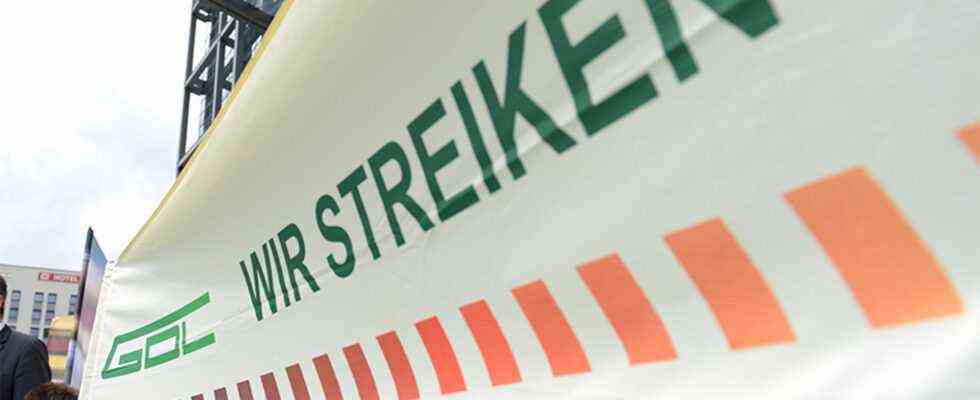background
Status: 02.09.2021 10:43 a.m.
The strike at Deutsche Bahn has a long history: In 2020 the collective bargaining between the train drivers’ union GDL and the company failed. The main points of contention have persisted since then. An overview.
Wages and salaries
The GDL is demanding 1.4 percent more money for employees this year and 1.8 percent more in 2022 – a total of 3.2 percent. This corresponds to the qualification in the public service. The GDL has dropped its original demand of 4.8 percent more money. However, it also requires a corona premium of 600 euros, which should still flow in 2021.
The railway offered 3.2 percent more pay, but at a later point in time. With a view to the term, it is based on the regulations that were made in the public service for airports: It offers 1.5 percent more money from January and 1.7 percent from March 2023 with a term until June 30, 2024 Shortly before the third wave of strikes began, the company also offered a corona bonus of up to 600 euros.
running time
Unions usually want short terms for collective agreements; then you can negotiate again more quickly. The GDL is fighting for a term of 28 months. Deutsche Bahn was initially aiming for 40 months, the last offer so far provides for a term of 36 months.
A contract with the second rail union EVG has been in effect since 2020 until February 2023. If the GDL gets more out for the time until then, the EVG has a special right of termination and can renegotiate.
scope
The train drivers’ union GDL not only wants to negotiate for train drivers, but also to conclude framework collective agreements for other professional groups. In 2014/2015, after strikes, she managed to negotiate a deal for train attendants as well. Now it also wants to set tariffs for vehicle maintenance, network operation and route maintenance as well as the framework conditions for the trainees.
The railway rejects that. It assumes that the GDL has hardly any members in the infrastructure companies. According to the Unified Collective Bargaining Act, only the contract of the larger railway and transport union (EVG) would then apply. The GDL is attacking the procedure for this in court. She also wants to win more members in order to break the mechanism.
Company pension
The company pension at Deutsche Bahn is mainly based on a pension fund that invests in stocks and bonds. But there is also the so-called supplementary pension collective agreement. Deutsche Bahn puts money aside for employees for this supplementary pension. Because there is hardly any interest and the reserves are burdening the balance sheet, the railway terminated the contract in 2020. The employer’s contributions to the pension fund meanwhile rose to 3.3 percent of the annual salary.
The GDL wants to hold on to the supplementary pension. The railway wants to transfer the system to the pension fund and offered in a mediation in 2020 to increase the contributions to 3.7 percent. The GDL rejected the mediation recommendation. She fears that employees will receive less money overall in old age. In contrast, Deutsche Bahn assumes that the bottom line is that employees expect a plus.

